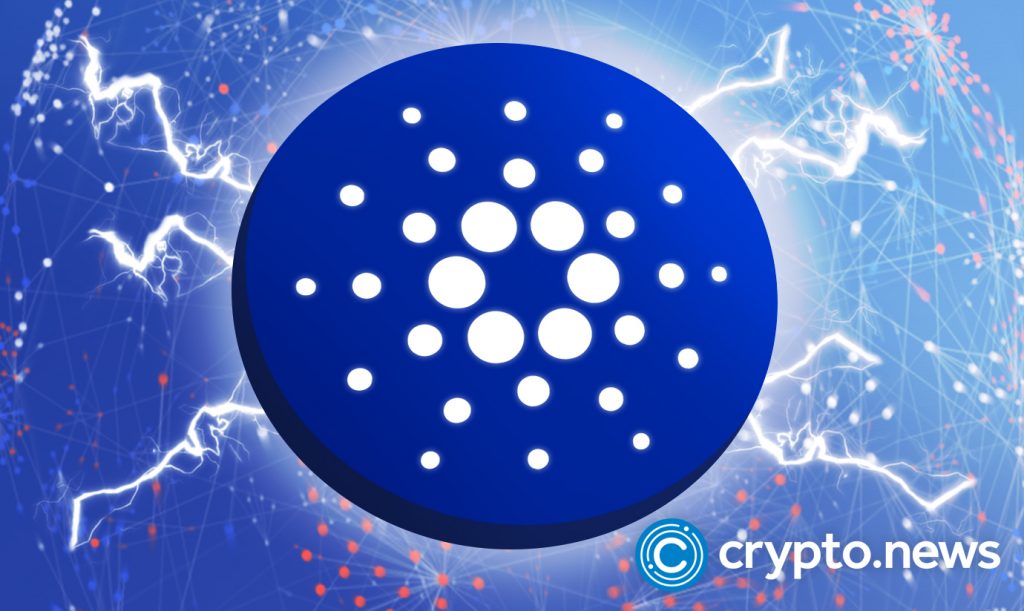
Various blockchains and ecosystems can play a vital role in the future of decentralized finance. Cardano’s technology and infrastructure make for a viable candidate, even though some people are vocal about the lack of growth. However, some exciting developments in the pipeline are capable of turning things around in the coming months.
The Cardano DeFi Critics
It is often healthy to have an outspoken opinion on things, whether positive or negative. Offering constructive criticism can lead to new opportunities and developments. For example, the Cardano ecosystem has faced a fair bit of criticism lately, primarily regarding its role in DeFi. Several critics expected Cardano to become a top-three network for Total Value Locked right away, even if that vision was never feasible.
Statistics-wise, Cardano has a slow start to its DeFi journey. The network represents under $300 million in Total Value Locked, making it the twentieth-largest network by TVL. Nothing impressive, and the numbers are still going down. At its peak, Cardano represented over $434 million in TVL. Unfortunately, protocols like SundaeSwap and ADAX Pro lost over 40% of their TVL this past month. Meld lost over 16%, making some people wonder whether this network has a future in decentralized finance.
One of the biggest critics regarding this topic is Emin Gun Sirer. It is interesting to see the founder and CEO of Avalanche’s Avalabs boast about how one Avalanche subnet has more TVL than Cardano despite launching a few days ago. Comparing apples and oranges is a popular concept in cryptocurrency, even though these comparisons rarely make sense.
A single Avalanche subnet, launched literally two days ago, has more TVL than Cardano, ranked 8th. Avalanche itself is ranked 10th. Make of that what you will. https://t.co/mvSely7V91
— Emin Gün Sirer🔺 (@el33th4xor) April 2, 2022
Charles Hoskinson Never Backs Down
The comments above by Sirer confirm Cardano’s slow growth in decentralized finance. However, putting everything in the right perspective is crucial before taking the remarks at face value. Every network is operated differently and will attract a unique crowd of users and developers. Moreover, initial success is never a guarantee for long-term viability either. The reply by Charles Hoskinson below confirms initial hype and momentum are not the key goals to pursue in DeFi.
That said, no one can deny something will need to change for Cardano. Although its infrastructure is solid and smart contracts do their job, there is always room for improvement. Just three protocols on Cardano have over $50 million in TVL today, and there are ten tracked projects in total. So growing the ranks and building a stronger infrastructure remains essential.
Hydra Is A Big Project
Like Ethereum and other networks, Cardano can benefit from Layer-2 scaling to increase throughput and efficiency. Hydra, an up-and-coming Layer-2 solution running on top of the existing Cardano blockchain, is an intriguing concept. It is designed to address issues and concerns affecting Cardano, including acceptable fees, DDoS protection, and efficient transaction history storage.
Through Hydra, transaction processing occurs off-chain for sets of users. The main Cardano network is the settlement layer, removing the need for global consensus through the Ourobouros mechanism. Instead, Hydra can support dozens of use cases and applications, as it is less bound by these technological constraints than Cardano’s main chain. Moreover, developers can adjust TX fees and minimum UTXO value for better efficiency.
The introduction of isomorphic state channels is another solid benefit. Hydra will reuse the same ledger representation to create off-chain “ledger siblings”. Every sibling can benefit from native assets, NFTs, and Plutus scripting. Applications running on Cardano can leverage this technology without friction. In addition, Hydra supports the same formats and signatures, making adding Layer-2 support a breeze.
For now, Hydra is still in early development. However, that first testnet version will be released shortly. That release will give users and developers a feel for the faster transaction execution speed and the fee reduction to near zero.
Various Interesting Projects
The Cardano critics will be pleased to hear there are various projects in development. Every project uses Cardano – and may potentially integrate Hydra if it makes sense – to bring a positive spotlight to this ecosystem. In addition, the native technology found within Cardano’s stack lends itself to different use cases and concepts, creating a versatile overall ecosystem.
One notable project is Profila, a zero-knowledge advertising platform for Web3 purposes. Its purpose is to let users control their online data and earn compensation when sharing it with third parties. Those third parties pay for the data, as it is more accurate and actionable. A decentralized exchange of personal data will empower both users and brands in the Web3 environment.
Cardano is also getting NFT action through the AdaSwap marketplace, AdaNFT. People may know AdaSwap as a decentralized exchange, but the team aims to support non-fungible tokens. The marketplace is Layer-1-based and one of the first DeFi-oriented protocols on Cardano. Artists will be granted access to the marketplace through a robust governance protocol governed by AdaSwap holders.
